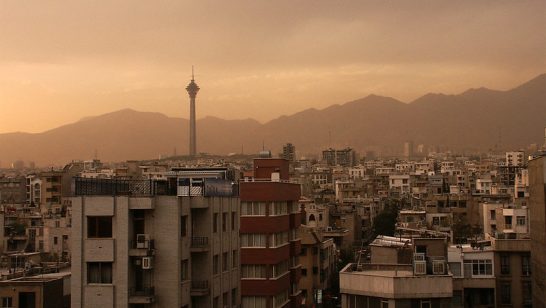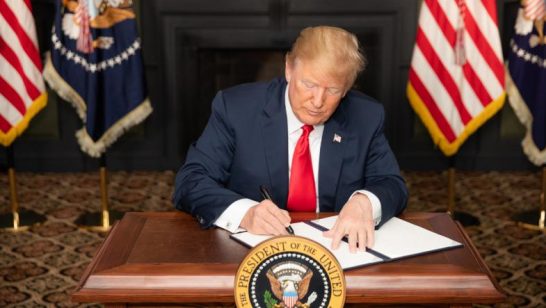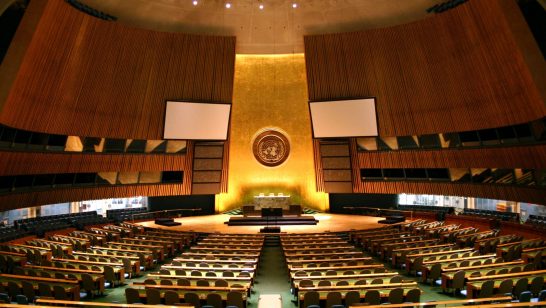
“A ‘geopolitical’ commission must demonstrate geopolitical activity.”
– Carl Bildt, Former Prime Minister and Foreign Minister of Sweden, 8 January 2020
Background
On 10 January 2020, the Foreign Affairs Council of the European Union will meet to discuss current affairs, recent developments in Iraq, and ways to deescalate tensions in the region (see agenda). The 28 foreign ministers are likely to discuss the recent escalation of tension between the United States and Iran, its implications on Iraq, as well as Iran’s recent announcement to stop honouring its commitment to limit uranium enrichment. What should the ministers decide?
Context
Addressing Iran’s nuclear ambitions is challenging in its own right. To engage in crisis management in an environment of a rapid escalation of tension between Iran and Europe’s close ally, the United States, dramatically increases the complexity of the task.
Ministers will be seeking ways to preserve whatever remains of the Joint Comprehensive Plan of Action (JCPOA) and to encourage Iran to return to full implementation. They will also seek to ensure that the operations of NATO Mission Iraq continue despite the Iraqi Parliament’s vote to expel US troops from the country.
Can European brokering – even in these dire circumstances – credibly renew their effort to bring about a deal between Washington and Tehran? Or, at least, create some risk reduction measures so that a cooling-off period can emerge during which diplomacy can bear fruit?
Recommendations for the Foreign Affairs Council
Take steps to contain Iran’s nuclear programme:
While Iran’s decision to remove quantitative restrictions on its uranium enrichment programme is concerning, it has yet to take practical action to re-institute its capacity. Until it does so, it would be premature to invoke the JCPOA’s Dispute Resolution Mechanism (DRM). Before the DRM process is launched, all present parties (including Russia and China), and de facto the United States, should be able to at least identify a pathway to full implementation.
Should Iran, in the coming weeks, decide to ramp up its nuclear activity, the European Union should stand ready to review its position on the merits of a substantially diminished JCPOA. At present, however, this ought not to be viewed as a higher priority than general de-escalation. Therefore, ministers could usefully:
- Publically state that an unrestricted Iranian nuclear programme is not in European or Iranian interest. Make clear that continued European support is contingent on Iran acting with restraint by, for instance, only making reversible steps that do not significantly alter breakout capacity.
- Stress that an increase of centrifuge capacity at its enrichment sites, as well as the production of uranium at higher levels of enrichment, would aggravate tensions in the region, and ultimately elevate the likelihood of an armed confrontation.
- Welcome that Iran has not suspended verification-related obligations under the JCPOA, including the voluntary application of the Additional Protocol, as well as core obligations relating to the weaponisation of fissile material.
- Express support for the vital role played by the International Atomic Energy Agency (IAEA) in verifying that nuclear material in Iran is used for peaceful purposes. Commit to continued financial support for the IAEA verification mission in Iran by, in particular, pledging to contribute substantially to what remains unfunded in the IAEA regular budget.
- Commit to finding more liquidity to urgently operationalise the Instrument in Support of Trade Exchanges (INSTEX), to facilitate commerce between the European Union and Iran, particularly in the areas of agro-food and medicine.
- Review progress made under French President Macron’s initiative for Iran to sell oil for six months to one year, in exchange for reversing steps away from the JCPOA and good-faith dialogue on peripheral issues.
Maintain Iraqi stability:
The need to preserve Iraqi sovereignty and maintain the fight against Daesh should be a European priority. To secure the cooperation of both the United States and Iran in not turning Iraq into a site for proxy warfare, Europeans must be more strategic than taking one side of the fight between the two. Therefore, ministers could usefully:
- Stress that the continued suppression and eventual elimination of Daesh in Iraq and elsewhere is an interest shared by Iran, the European Union, and the allies of the Union’s member states.
- Commit to exploring, as has been recommended by the European Council on Foreign Relations, ways and means to maintain European military presence in Iraq to continue to counter Daesh, and to explore ways to “operationalise Europe’s enhanced role.”
Find new pathways to de-escalation:
There are limits to what the European Union can do by itself. The Union needs to marshal extensive support, both in the region and elsewhere, for initiatives that promise to reduce, and ultimately eliminate regional tensions. This will, by necessity, have to involve external actors, such as China, the Russian Federation, and the United States, as well as regional powers, such as Saudi Arabia and the United Arab Emirates. Therefore, ministers could usefully:
- Recognise the vital role played by both Russia and China in finding a successful formula for de-escalation, and pledge to intensify dialogue with these two parties, potentially under French leadership.
- Intensify proactive and independent diplomacy with the United States and continue to offer the use of European “good offices” for backchannel conversations between the US and Iran.
- Engage constructively with Iran’s Hormuz Peace Endeavor (HOPE) Initiative to ensure representative participation of all states whose national interests are benefited by regional stability.
- Propose a broader meeting to be held with other actors during which presentations could be conveyed on all regional security proposals, leading to discussions on their relative merits and consolidation of agreed concepts between them. In this context, intensify dialogue with Saudi Arabia and the United Arab Emirates.
Prevent further use of force:
While the situation in the region has stabilised, tension remains. Any further military action will have unpredictable and potentially severe consequences. These are likely to have a more significant impact on pan-European security than the security of its transatlantic partners.
- Stress that the use of force by any State, especially at this juncture, entails considerable risks for both regional and international stability, and diplomatic options must be pursued.
- Without prejudice to the right to self-defence, stress that the application of force ought only to be considered after the UN Security Council has reviewed all options at its disposal.
The opinions articulated above represent the views of the author(s), and do not necessarily reflect the position of the European Leadership Network or any of its members. The ELN’s aim is to encourage debates that will help develop Europe’s capacity to address the pressing foreign, defence, and security challenges of our time.




